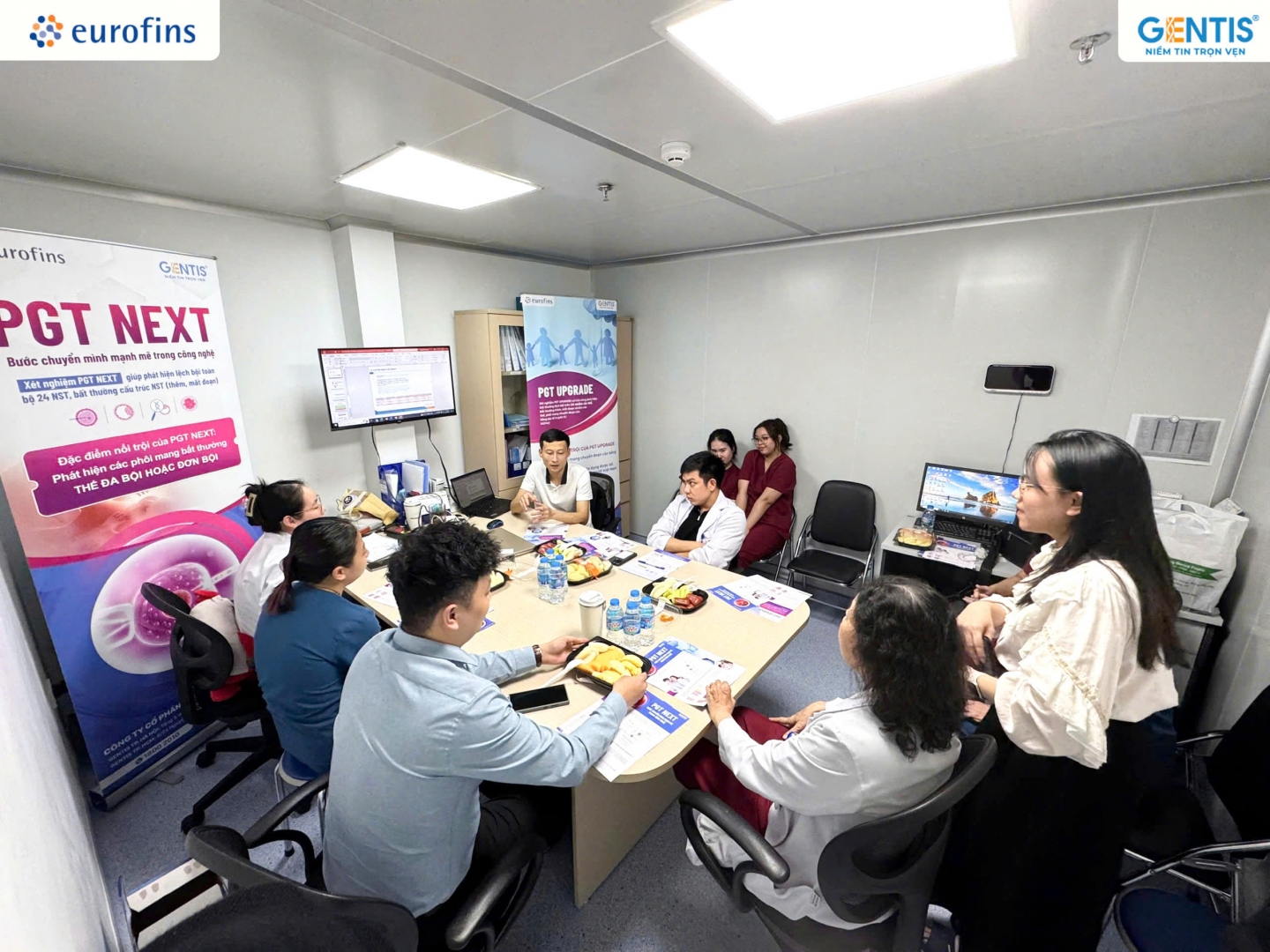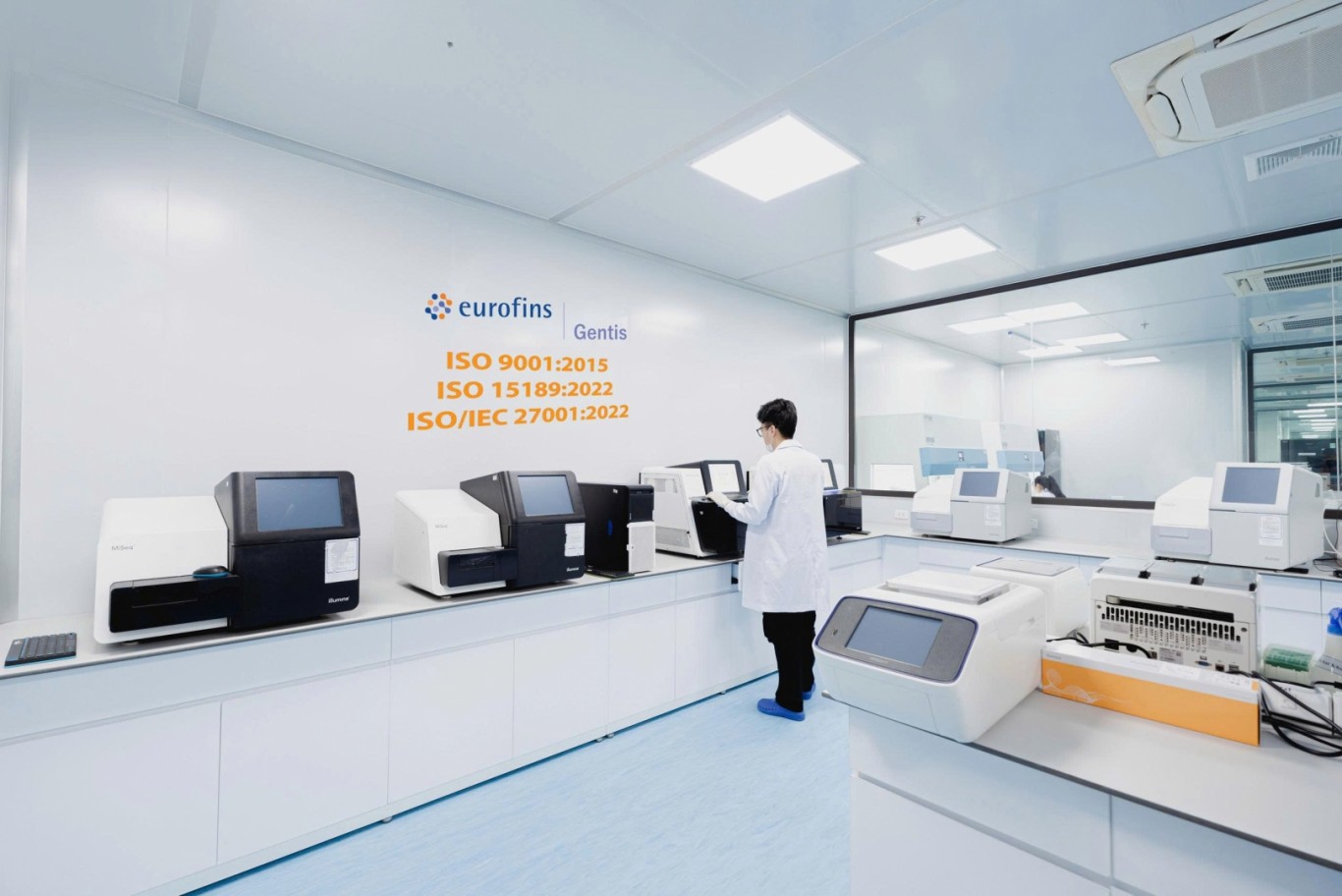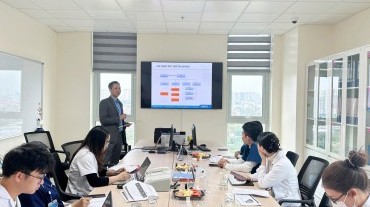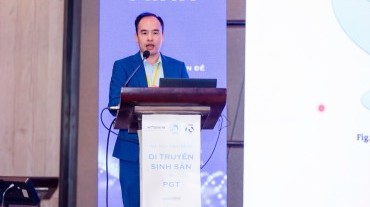Attendants at the scientific seminar at An Viet General Hospital included PhD. Dr. Le Minh Chau (Head of the Obstetrics and Gynecology Department at An Viet Hospital), Dr. Mai Thi Giang (Head of the IVF Lab), Dr. Dang Van Ha (Reproductive Support Department), as well as nurses, healthcare staff, and laboratory technicians. From GENTIS, the event saw the presence of MSc. Nguyen Van Huynh (Head of R&D Department at GENTIS) and Ms. Duong Thi Phuong (Head of PM Department at GENTIS)
Throughout the seminar, MSc Huynh provided detailed presentations about PGT NEXT and PGT UPGRADE tests, highlighting the superior features of these two cutting-edge testing solutions.

Regarding PGT NEXT, MSc. Huynh explained that this is an advanced method in in-vitro fertilization (IVF) that analyzes and detects genetic changes in embryos before they are implanted in the uterus. The primary function of this test is to detect genetic disorders, gene mutations, and conditions that could cause health problems for the child or increase the risk of miscarriage.
By using Next-Generation Sequencing (NGS) technology, PGT-NEXT provides higher accuracy compared to traditional testing methods, enabling the selection of healthy embryos, reducing the risk of inherited diseases, and increasing the success rate of pregnancy. This tool is crucial for couples at high genetic risk, offering them a better chance of having a healthy baby. Additionally, this test can be extended to patients with a history of polyploid pregnancies, molar pregnancies, or recurrent miscarriages after undergoing traditional PGT-A IVF, increasing the number of embryos suitable for transfer from fertilized embryos with abnormalities (0PN, 1PN, or 2.1/3PN).
Discussing PGT-UPGRADE, MSc. Huynh mentioned that this is an advanced genetic screening method that detects embryos with balanced translocations. "Balanced translocation is a phenomenon where DNA segments are exchanged between non-homologous chromosomes without increasing or decreasing genetic material at the breakpoints. Balanced translocations are divided into two types: reciprocal translocation and Robertsonian translocation."
Compared to previous traditional PGT methods, PGT-UPGRADE uses NGS technology combined with targeted SNP sequencing, providing higher resolution in detecting aneuploidy, chromosomal structural abnormalities, and complex genetic changes. This method is especially useful for detecting small chromosomal abnormalities and balanced genetic translocations that older methods could not identify, thus helping select healthy embryos, reducing the risk of miscarriage or the birth of children with genetic disorders. PGT-UPGRADE not only increases the success rate of pregnancy but also offers great hope for couples with a history of genetic disorders or recurrent miscarriages, demonstrating its superiority in accuracy and effectiveness over older genetic screening methods.

The seminar took place in a lively atmosphere, receiving positive feedback and interest from the participating doctors. Questions related to PGT-NEXT and PGT-UPGRADE from the doctors of An Viet General Hospital were thoroughly answered by the GENTIS representatives. At the conclusion of the seminar, the doctors at An Viet General Hospital highly appreciated the two advanced tests offered by GENTIS, stating, "These tests are not only a breakthrough in medicine but also bring new rays of hope to couples on their journey to find their beloved child."
GENTIS hopes that after this informative exchange, it will continue to have the opportunity to accompany and collaborate with An Viet Hospital in the future!











